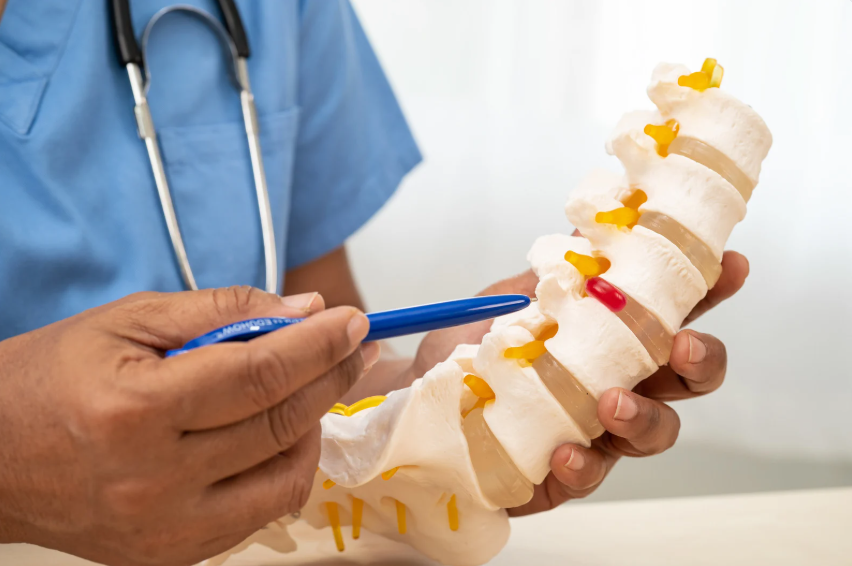If you’re dealing with joint pain, stiffness, or musculoskeletal issues, seeing an orthopedic doctor is often the next step to take. Whether it’s a recent injury or a chronic condition like arthritis, understanding what to expect during your first check-up can make the process smoother and less stressful. In this article, we’ll walk you through everything you need to know about your first visit to an orthopedic doctor, including what happens during the check-up and how to prepare for it.
At Tec Orthopedics, we believe that being informed and prepared will help you make the most out of your appointment. Let’s explore what you can expect during your initial visit to an orthopedic doctor.
Who Needs an Orthopedic Doctor Check-Up?
An orthopedic doctor is a specialist who deals with the diagnosis, treatment, and prevention of musculoskeletal disorders. This includes problems with bones, joints, muscles, ligaments, and tendons. So, who should visit an orthopedic doctor?
If you’re experiencing persistent pain in your joints, muscles, or bones, it’s a good sign that you should consult an orthopedic doctor. Symptoms such as swelling, stiffness, difficulty moving a limb, or feeling discomfort while walking or doing physical activities can all indicate a need for an orthopedic check-up.
Athletes, seniors, and those recovering from accidents or surgeries often seek out an orthopedic doctor for their expertise. Additionally, people suffering from chronic conditions like arthritis or those with congenital conditions might require a specialist’s care.
No matter your age or level of activity, if you’re experiencing musculoskeletal problems, visiting an orthopedic doctor should be a priority to ensure proper care and treatment.
How to Prepare for Your First Orthopaedic Appointment
The more prepared you are for your first visit to an orthopedic doctor, the smoother your appointment will go. Here’s how you can prepare effectively:
Bring Relevant Medical Documents
When you visit an orthopedic doctor, it’s important to bring along any relevant medical history, including previous X-rays, MRIs, or CT scans. If your general practitioner has referred you to see an orthopedic doctor, ensure you have their referral details and any notes from your past treatments. These records will help your doctor gain insight into your medical background and any prior treatments or surgeries you’ve undergone.
Note Down Your Symptoms
Before your visit, take some time to write down your symptoms. Make note of when the pain or discomfort started, what activities or movements exacerbate it, and any other factors that might help the orthopedic doctor understand your condition better. The more information you provide, the easier it will be for your doctor to make an accurate diagnosis.
Prepare Questions
During your first orthopedic consultation, you’ll want to make sure all your questions are answered. Prepare a list of questions to ask your orthopedic doctor. Some examples include:
- “What might be causing my pain or discomfort?”
- “Are there any lifestyle changes I should consider?”
- “What treatment options are available?”
At Tec Orthopedics, we encourage patients to come prepared with their questions so we can ensure that every concern is addressed during the appointment.
What Happens During the Orthopaedic Check-Up?
Your first appointment with an orthopedic doctor will typically involve several steps to ensure that your doctor understands your condition. Here’s an overview of what you can expect during your initial visit:
Discussion of Symptoms
The first part of your visit will likely involve a detailed discussion of your symptoms. Your orthopedic doctor will ask you questions to understand your pain and its progression. It’s important to be as honest and specific as possible to help your doctor pinpoint the root of the issue.
At Tec Orthopedics, our team focuses on understanding your unique condition and providing personalized care based on your symptoms. We’ll ask about the onset of pain, any history of injuries, and your physical activity levels.
Physical Examination
Once your orthopedic doctor has a good understanding of your symptoms, they will perform a physical examination. During this part of the check-up, the orthopedic doctor will examine the affected area for signs of swelling, deformities, or limited range of motion. You may be asked to move or rotate your joint, which will help the doctor assess how well it functions.
For example, if you’re experiencing knee pain, the doctor may ask you to perform certain movements to evaluate your knee’s stability and mobility. The doctor may also test muscle strength and check for any tenderness or abnormal sensations.
Diagnostic Tests
If necessary, your orthopedic doctor may recommend further diagnostic tests such as X-rays, MRI scans, or CT scans. These tests provide a clearer picture of the bones, joints, and soft tissues inside your body, helping the doctor make an accurate diagnosis. Depending on your symptoms, these tests may be performed either during your first visit or scheduled for a later appointment.
At Tec Orthopedics, we have state-of-the-art diagnostic equipment to help our doctors make the most accurate assessments, ensuring that you receive the best possible care.
Treatment Discussion
Once the doctor has completed the examination and reviewed any test results, they will discuss treatment options with you. Treatment for musculoskeletal conditions can vary depending on the diagnosis but often includes a combination of physical therapy, medications, lifestyle changes, or even surgery in more severe cases.
Your orthopedic doctor will work with you to choose the treatment plan that’s most suitable for your condition. If surgery is required, your doctor will explain the procedure in detail, answer any questions, and discuss recovery expectations.
Common Questions Patients Ask Orthopedic Doctors
It’s common for patients to have several questions during their first visit to an orthopedic doctor. Here are some of the most frequently asked questions:
“Will I Need Surgery?”
Many people worry about needing surgery when they visit an orthopedic doctor. The truth is, surgery is not always necessary, and most musculoskeletal conditions can be treated with conservative methods like physical therapy, medications, and lifestyle changes. Surgery is generally considered a last resort if non-invasive treatments don’t provide relief.
“What Can I Do to Prevent My Condition from Worsening?”
Your orthopedic doctor will likely provide recommendations for activities, exercises, and lifestyle changes that can help manage your condition and prevent it from getting worse. This may include advice on posture, weight management, or specific physical therapy exercises.
“How Long Will Recovery Take?”
The recovery time will depend on the severity of your condition and the treatment plan. Your orthopedic doctor will give you an estimated timeline for recovery, whether you’re following a conservative treatment plan or recovering from surgery.
“What Lifestyle Changes Should I Make?”
If you’re dealing with joint pain or other musculoskeletal issues, your orthopedic doctor may suggest lifestyle changes that can reduce strain on your body. This may include modifying your exercise routine, improving your diet, or using assistive devices to ease movement.
Tips for Getting the Most Out of Your First Visit
To ensure your first visit to the orthopedic doctor is as effective as possible, here are some tips:
- Be Honest and Detailed: The more details you provide about your symptoms and medical history, the better equipped your orthopedic doctor will be to diagnose and treat your condition.
- Don’t Hesitate to Ask Questions: It’s important to understand your diagnosis and treatment options. Don’t be afraid to ask your orthopedic doctor to explain things in simple terms.
- Take Notes: During your appointment, take notes so you can remember the doctor’s instructions and advice later.
At Tec Orthopedics, we believe that open communication is key to successful treatment, and we encourage all our patients to ask questions and be involved in their treatment decisions.
What to Expect Moving Forward
After your first orthopedic check-up, you’ll have a better understanding of your condition and what steps are needed to improve your musculoskeletal health. Whether you’re given a treatment plan involving physical therapy, medications, or lifestyle changes, it’s important to follow your orthopedic doctor’s recommendations to achieve the best results.
At Tec Orthopedics, we’re committed to providing comprehensive care that goes beyond just diagnosis and treatment. We work closely with you to ensure you’re fully supported throughout your recovery journey. If you’re ready to see an orthopedic doctor for your first check-up, contact us today to schedule your appointment and start your path to better health.




